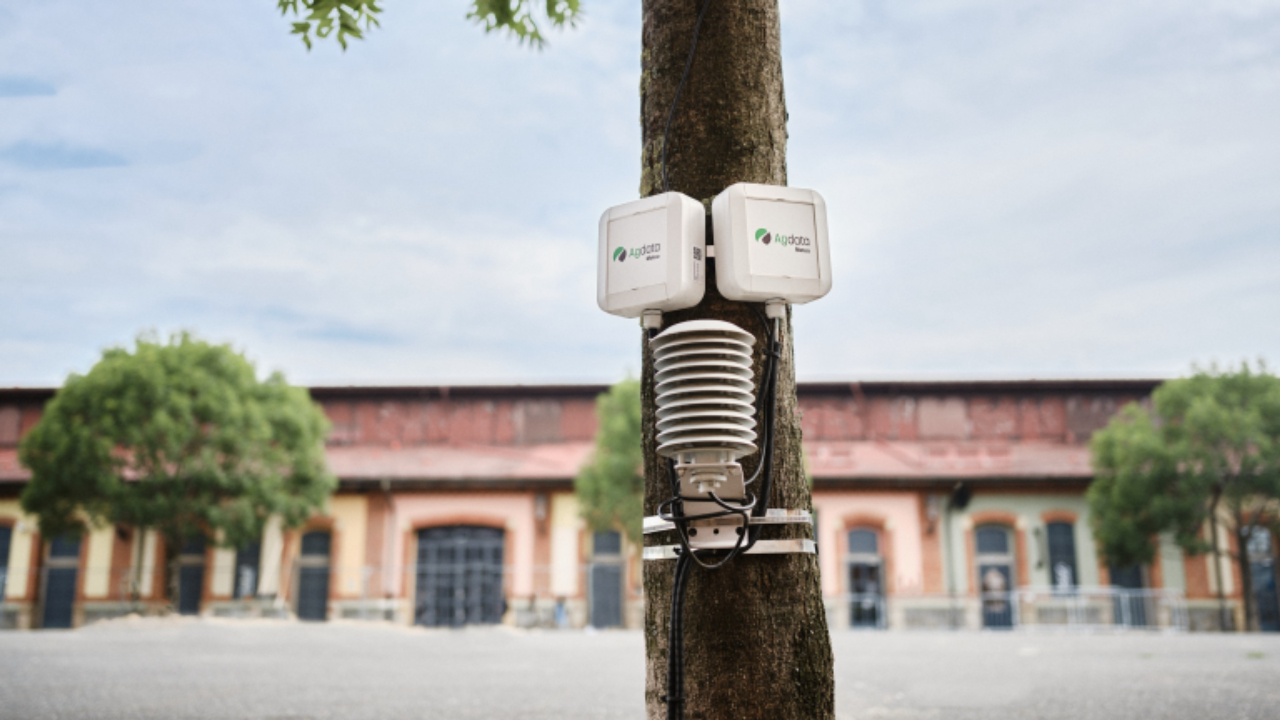
More efficient urban construction planning and easier maintenance of furniture and greenery thanks to microclimate monitoring. This is the goal of the pilot project for monitoring microclimatic parameters in the urban environment, behind which stands the municipal company Operátor ICT (OICT). The measurement results have now been made publicly available in the Golemio data platform for those interested. The OICT cooperates with the Institute of Planning and Development of the City of Prague and the Department of Environmental Protection of the Prague City Hall. The technology is supplied by the Czech start-up Agdata.
"We have newly made the data from the tested sensors available to the public in the Golemio data platform. At selected locations, those interested can find information on various microclimate parameters related to, for example, temperature, air flow, air and soil humidity, solar radiation intensity or tree growth," says Petr Suška, vice chairman of the board and director of the Smart City and Innovation department at OICT. The Golemio data platform is the only one in Prague that enables the evaluation and interpretation of city data as a whole. It works with data from the areas of public transport, Prague City Hall management, car transport, housing, property management, the environment and many others.
As part of the microclimate measurement pilot project, several types of sensors are used in Prague to monitor wind speed and direction, atmospheric pressure, sunlight intensity and rainfall. But there are also soil sensors that check humidity and temperature at two depths, and dendrometers. They measure tree growth and their overall condition in a non-invasive way. "In the future, the obtained data will help Prague plan more effectively and take measures to mitigate extreme heat waves and drought, which will ultimately lead to an improvement in the quality of life of citizens. The problem of overheating and heat islands affects all larger cities these days," adds Petr Suška.
The project uses Czech technologies
The technology of the project is supplied by the Czech start-up Agdata, which specializes in hyperlocal measurement of weather and air quality for cities and towns, where it works with smart sensors and collects and sends local data in real time.
"In Prague, we installed 134 sensors in 16 locations, which were selected by the OICT in cooperation with the IPR and the Prague City Hall, and in the first phase they should provide the city with information about the climate in specific places, as well as the condition of the soil and the condition of the greenery. Interesting outputs are shown, for example, by the aforementioned dendrometers, when in practice we also encountered trees that showed minimal growth in twenty years. They do not improve the climate in the city in any way, and local governments only invest unnecessarily in their maintenance," adds Lukáš Musil, Agdata's commercial director.
Savings and improvement of quality of life
In practice, the data obtained from the measurement should help Prague, among other things, in more efficient urban construction planning. Information from measurements can already be used in the preparation of development projects, where the city can define more precise conditions of what elements the project should contain and where it would be appropriate to place them. But the data will also help in the placement of urban furniture and its subsequent care or in the planning of new locations for children's and fitness playgrounds. Data from the sensors can be compared with aerial thermal imaging to see how the temperature measured in the street network differs from the data obtained from a bird's eye view.
The project supports the fulfilment of the goals of the Adaptation Strategy of the capital city of Prague on climate change and falls within the thematic framework of the Territorial Plan for Residential Development and the upcoming Metropolitan Plan. The project is also part of the implementation of the Smart Prague concept by 2030.
"Sensors monitoring the microclimate will allow us to better adjust the care of greenery in the future. We will have more accurate information so that, for example, we can more effectively plan the watering of trees, so that they can better handle the hot summer weather," says Jana Komrsková, the Deputy for the environment and climate plan.
The microclimate monitoring dataset is available on the website of the Golemio data platform.
Photos of the smart sensors through which the capital city monitors the microclimate are available here.